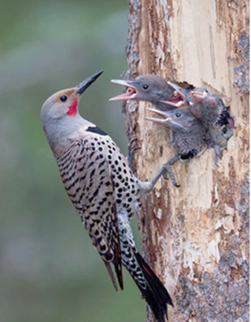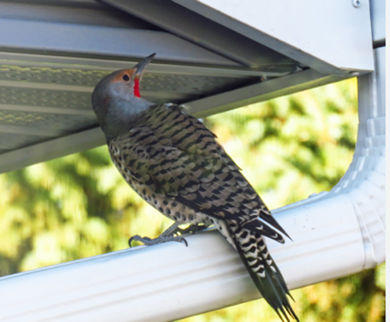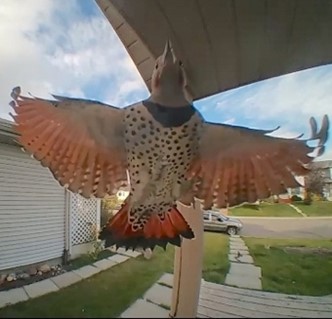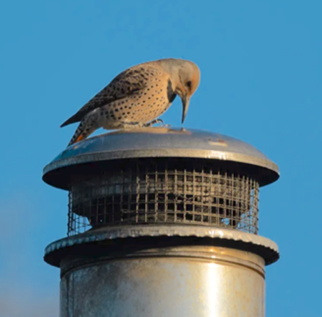by Cole Aptes
The Northern flicker (also known as the Common Flicker) is the most common species of woodpecker found in Calgary.
These birds are eleven to twelve inches long, weighing 3.9 to 5.6 oz and have a wingspan of sixteen to twenty inches.
They are a protected species under the Migratory Bird Convention Act. They go south for the winter.
They can be seen on the ground, eating beetles and ants. They use their long, curved beaks to dig for food and lick it up with their barbed tongues. In the forest, they live where there are good trees to nest in – usually dead or decaying trees – where an insect snack may be available nearby.
Their nesting period can last 27 days. Typically, they will have five to eight white eggs, in late May or early June, that hatch in eleven to thirteen days. These birds can live up to nine years.
People are not as happy to see them on their homes. They cause millions of dollars in damage to stucco in Alberta each year. They especially like stucco covered Styrofoam, where they can make a hole and nest inside.
Unlike other woodpeckers, they will reuse a nest they have made the year before or one made by another woodpecker.
Visual deterrents seem to work to keep them away. People have had success with plastic molds of their predators – owls or hawks. Pinwheels and shiny things also work. They will not peck at your siding if there are no bugs in it.
This is a reason to choose Hardy Board instead of ordinary wood siding.
When looking for a mate, northern flickers make a loud, evenly spaced drumming sound by hammering their beaks against trees or metal objects. In some places, this has earned them the name “Yellow Hammers”.




Click here to the Bayview Community News home page for the latest Bayview community updates.
Click here to the Palliser Community News home page for the latest Palliser community updates.
Click here to the Pumphill Community News home page for the latest Pumphill community updates.























